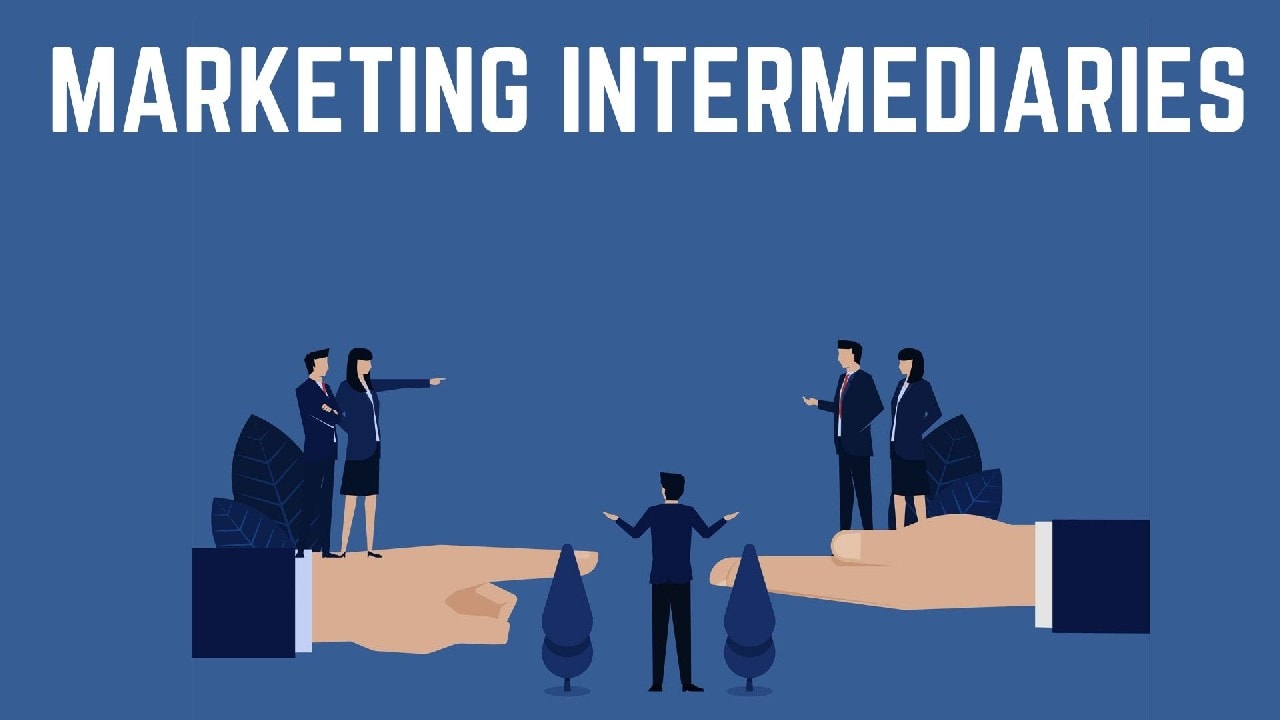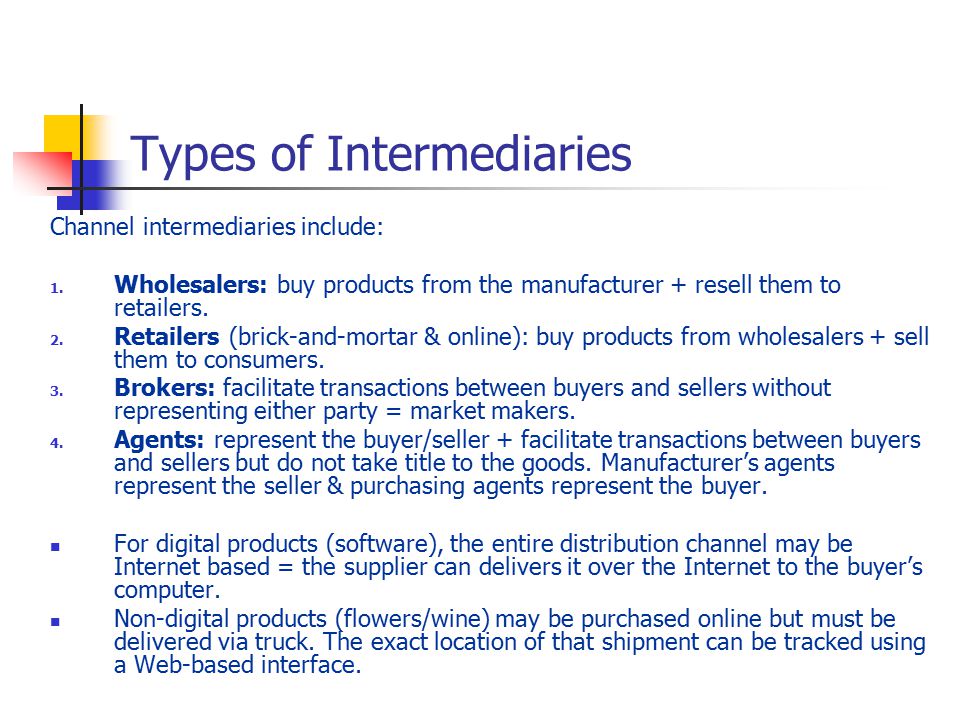Wholesalers rarely sell to the final user. Some wholesalers have multiple products to be sold to different retailers while others specialize in only a single product or a category.

The Four Types Of Marketing Intermediaries
C products would likely be more expensive due to the use of less efficient channel members.

. Wholesalers do not work with small numbers of product. In other words intermediaries are third-party agents or individuals between parties for a specific deal. They are legally appointed to impart.
Grocery stores buy produce and other products from farmers and suppliers to stock in their stores. Many producers do not sell products or services directly to consumers and instead use marketing intermediaries to execute an assortment of necessary functions to get the product to the final user. B products would be cheaper because the functions of intermediaries would be eliminated.
For example McLane Company Inc. Retailers can be small or large for-profit companies. These intermediaries such as middlemen wholesalers retailers agents and brokers distributors or financial.
Rather they sell the products to other intermediaries such as retailers for a higher price than they paid. Is among the largest wholesalers in the United States. We can also be described as the middleman but our services really go beyond than.
Distributors often sell to wholesalers and retailers creating minimal contact with the final buyers. They usually act as marketers or representatives on behalf of the sellers and dont actually own the. Both of these intermediaries sell products and services on a commission or percentage basis.
Grocery stores are a great example of retail intermediaries. Without wholesalers and other intermediaries a most products would be much less expensive because fewer companies would be handling the product. Retailers purchase products from other channel intermediaries such as wholesalers and distributors to sell directly to consumers.
Wholesalers are the intermediaries who buy products from the manufacturer in a large volume and then resell them to other small businesses usually retailers. Wholesalers often called merchant wholesalers help move goods between producers and retailers. They buy in bulk and store the products in their own warehouses and storage places until it is time to resell them.
Because a car is often an expensive purchase customers may feel more comfortable working with a salesperson rather than making the decision without guidance. Marketing agents sometimes also known as brokers are private individuals or firms that facilitate the selling of a product. It would be much more efficient if a third party intervenes via supply chain consulting and talks to all the suppliers instead of customers communicating to them one by one.
Intermediaries act as a link in the distribution process but the roles they fill are broader than simply connecting the different channel partners. There are four commonly known types of intermediaries namely marketing agents wholesalers distributors and retailers. The four types of traditional intermediaries are as follows.
Without intermediaries there would be no flow in transporting products from manufacturers up to the end users.

Marketing Intermediaries Meaning Different Types Explained With Examples

The Four Types Of Marketing Intermediaries

Lecture 22 Channel Conflict And Solutions 1 Why Use Channel Intermediaries Wholesaler Or Retailer With Intermediaries Milk P1bread P2shampoop3soap P4 Ppt Download

Chapter 12 Distribution Ppt Download

Marketing Chapter 12 Flashcards Quizlet

Learn About Distribution Channels Chegg Com

Intro To Business Chapter 15 Flashcards Quizlet

Marketing Strategy Chpt 10 Marketing Channels And Supply Chain Flashcards Quizlet
0 comments
Post a Comment